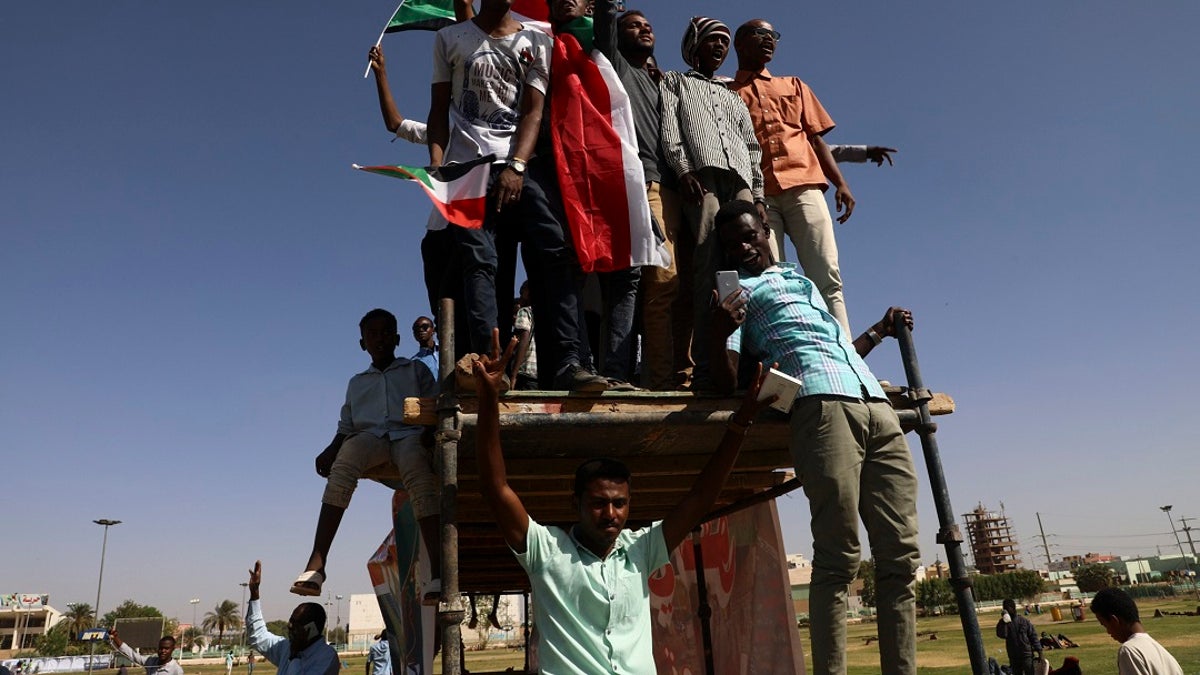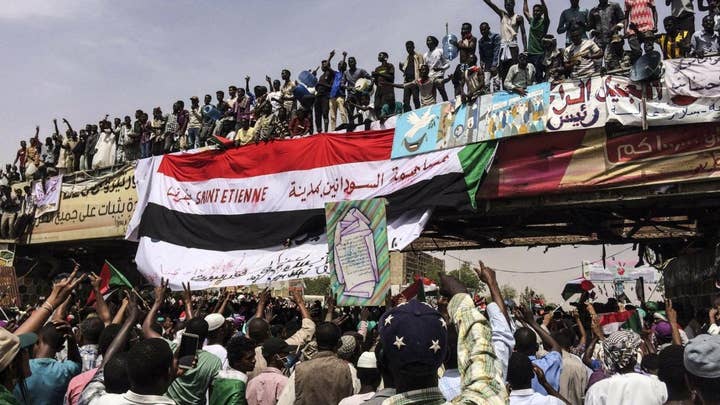Fox News Flash top headlines for Dec. 30
Fox News Flash top headlines for Dec. 30 are here. Check out what's clicking on Foxnews.com
A Sudanese court sentenced at least 27 members of the country's intelligence service to death by hanging for the torture and death of a protester during demonstrations against then-President Omar al-Bashir.
The sentences, which can be appealed, were the first to be handed out since harsh government crackdowns on the protests that eventually led to the toppling of Bashit in April. More than 200 protesters were killed during the unrest that began in December 2018.
“We are now sure our revolution is continuing on the right path,” said protester Amna Mohammed.
US LAUNCHES DRONE STRIKES IN SOMALIA AFTER DEADLY CAR BOMBING

People gather last month as they celebrate first anniversary of mass protests that led to the ouster of former president and longtime autocrat Omar al-Bashir in Khartoum, Sudan. (AP Photo)
The death of Ahmed al-Khair, a school teacher, became a rallying cry during the four months of demonstrations against Bashir. Khair's family said they were initially told he died of poisoning.
He was detained Jan. 31 in his hometown of Kassala and reported dead two days later. A state investigation determined he died of injuries from being beaten, Reuters reported.
“His death was an inevitable consequence of the beating and torture,” Judge al-Sadik al-Amin al-Fek said.
A TIMELINE OF KEY EVENTS IN SUDAN'S UNFINISHED REVOLUTION
Hundreds of people gathered outside the court in Omdurman for the sentence, with some waving the national flag and other holding photos of Khair.
“This day is a victory for justice, a victory for all Sudanese and a victory for the revolution,” Khair’s brother, Saad, told reporters after the verdict.
In addition to the death sentences, 13 were sentenced to prison terms and four were acquitted.
“With this ruling, the revolution will have paid off its debt to the martyrs a first time, to be followed as many times as the number of martyrs,” said a statement from the Sudanese Professionals Association, which spearheaded the protests against Bashir.
CLICK HERE TO GET THE FOX NEWS APP
The deposed ruler was jailed by the military after being removed from power for alleged corruption and money laundering. He is under indictment by the International Criminal Court on war crimes charges and genocide linked to his brutal suppression of the insurgency in the western province of Darfur in the early 2000s.
The military has refused to extradite him to The Hague.
The Associated Press contributed to this report.









































